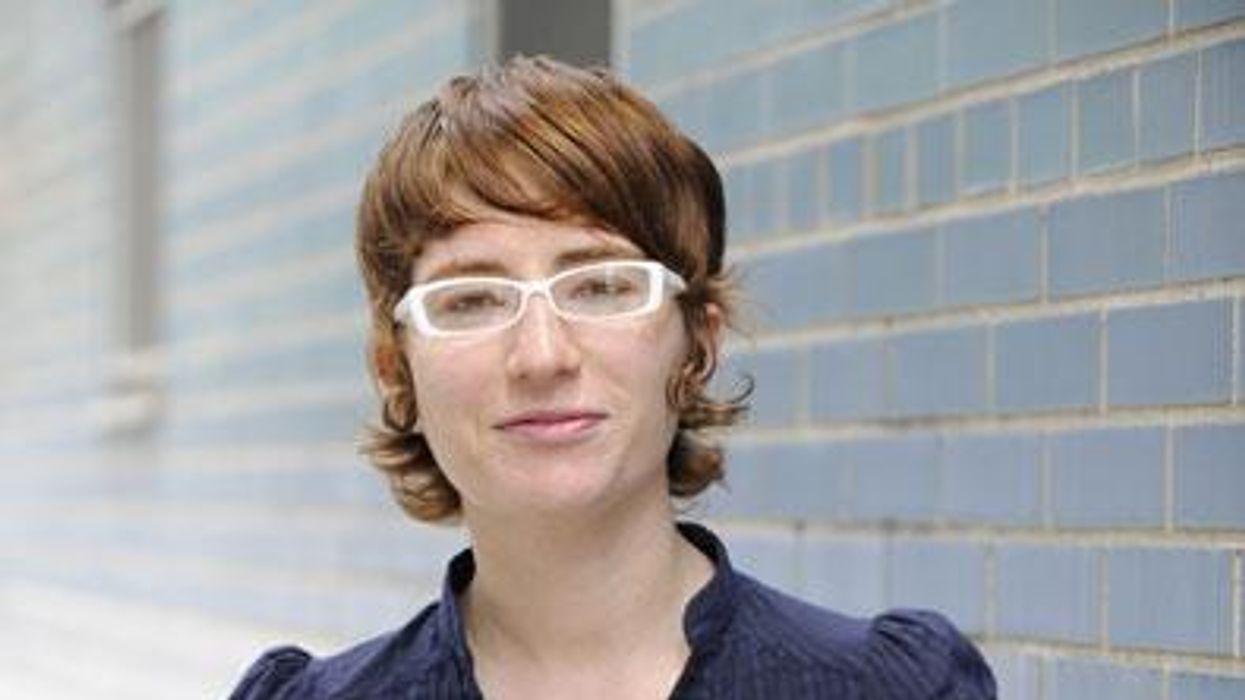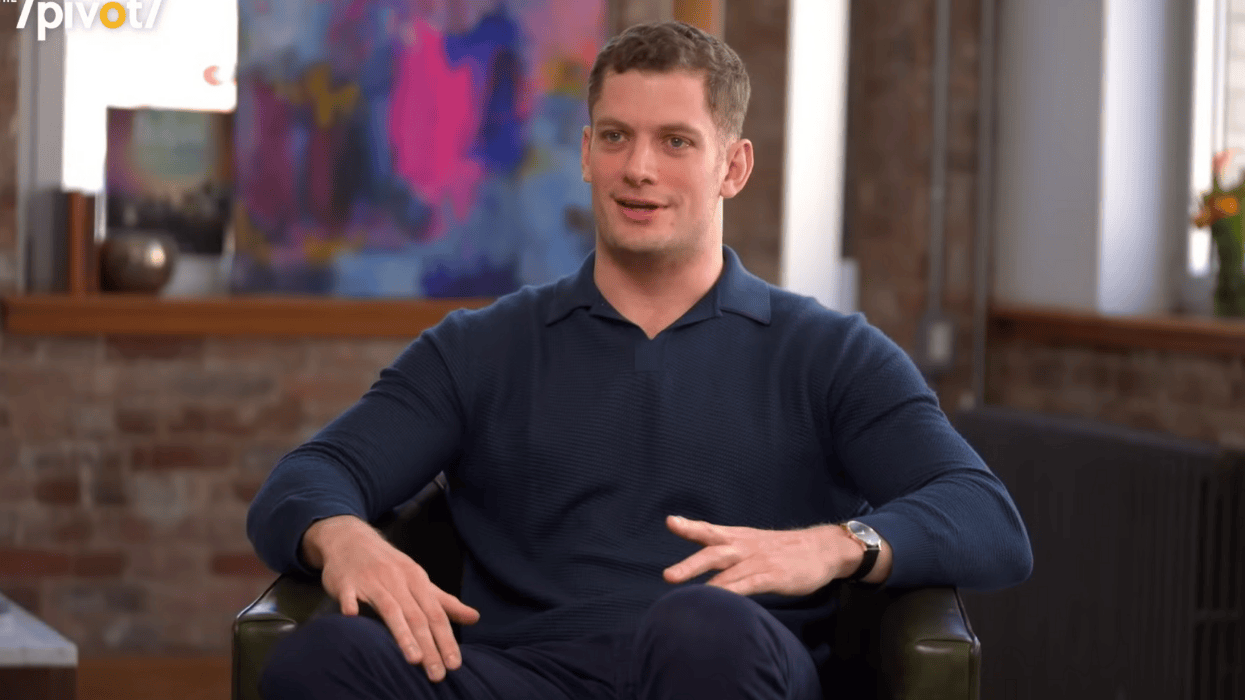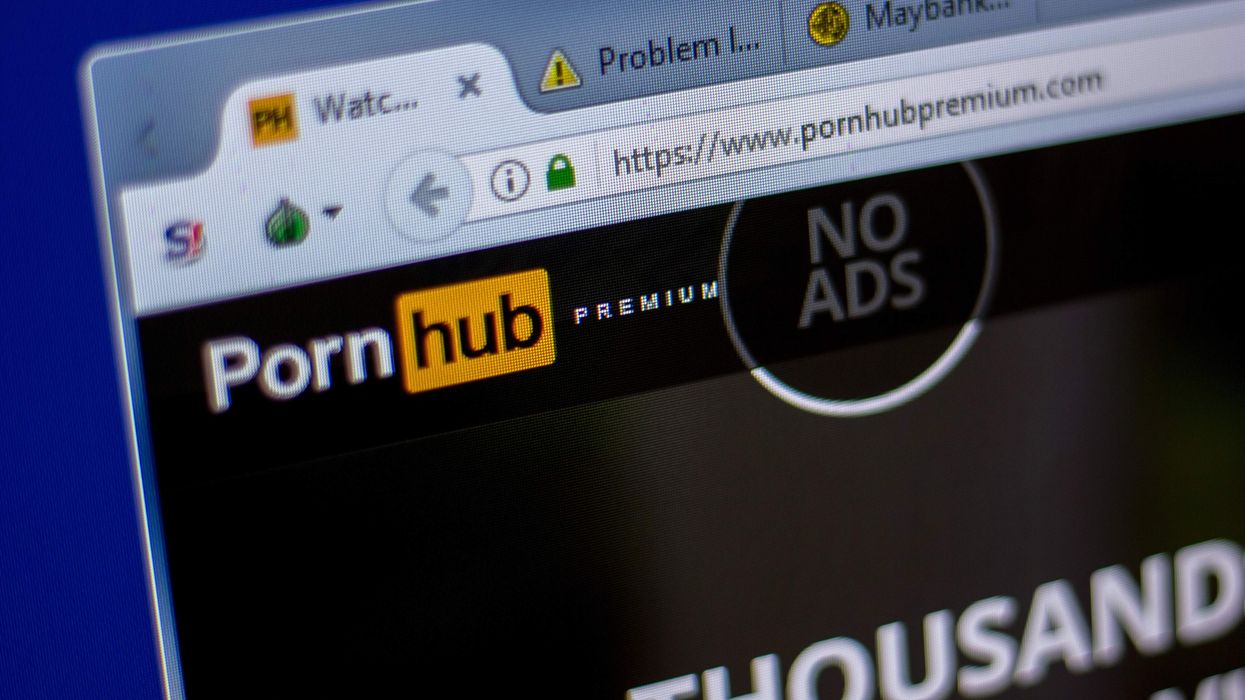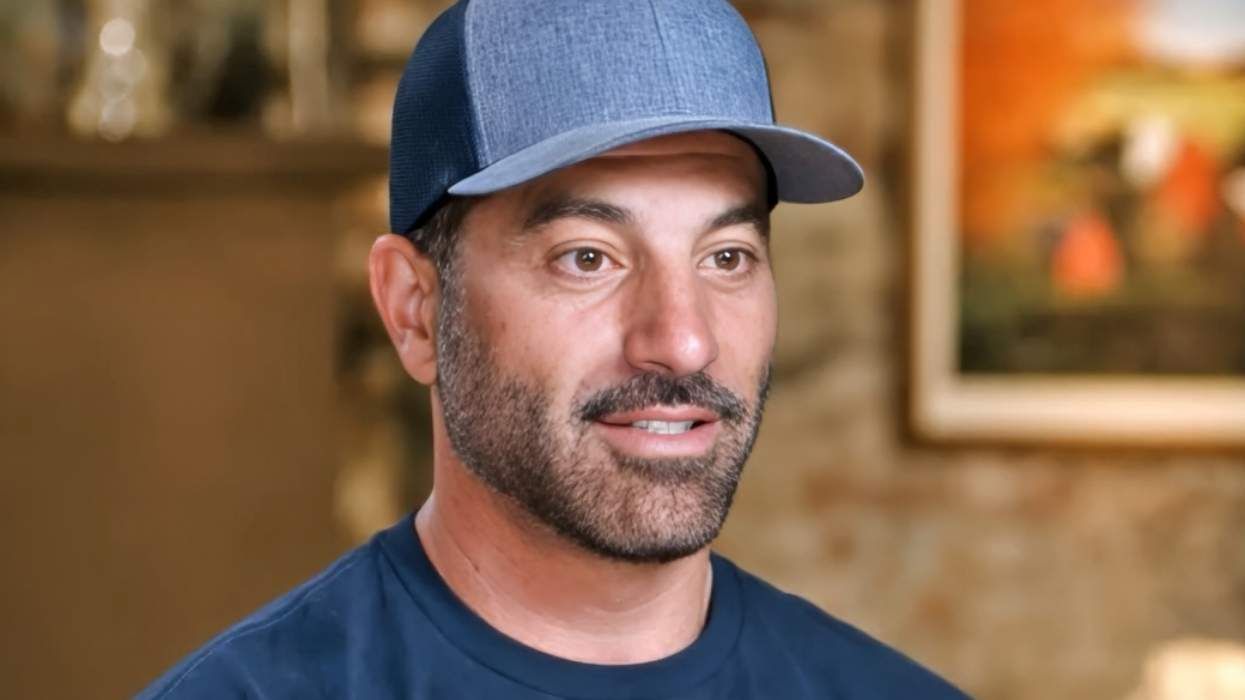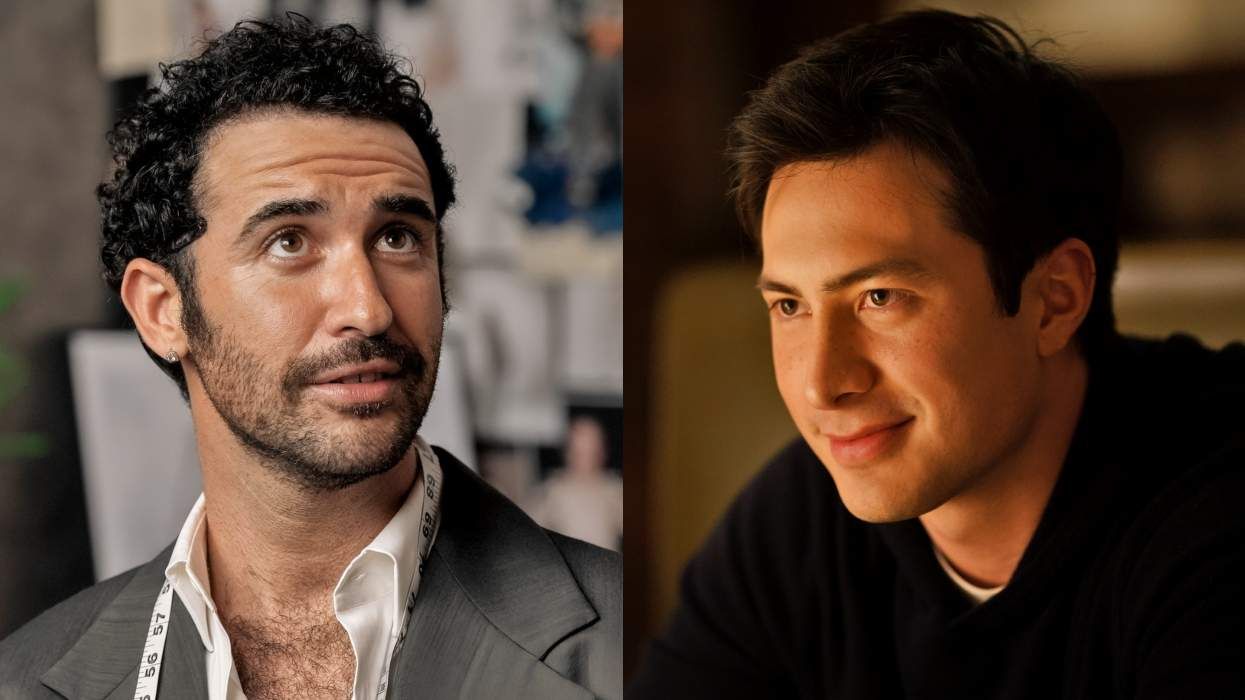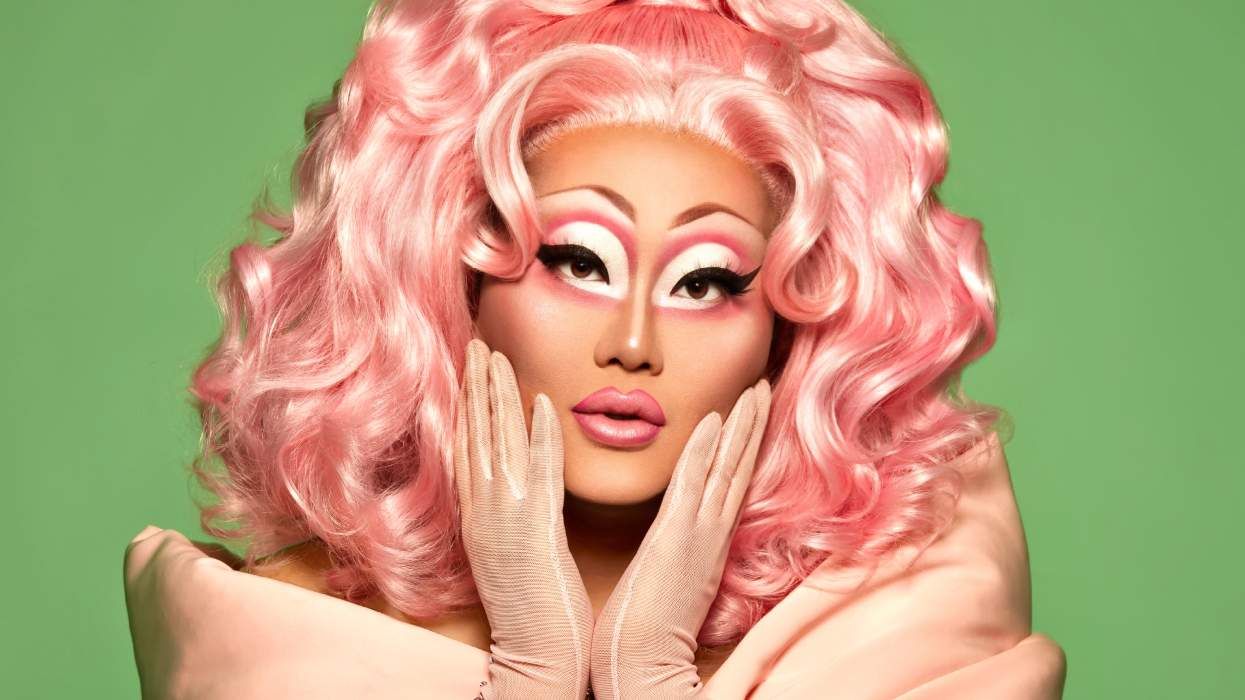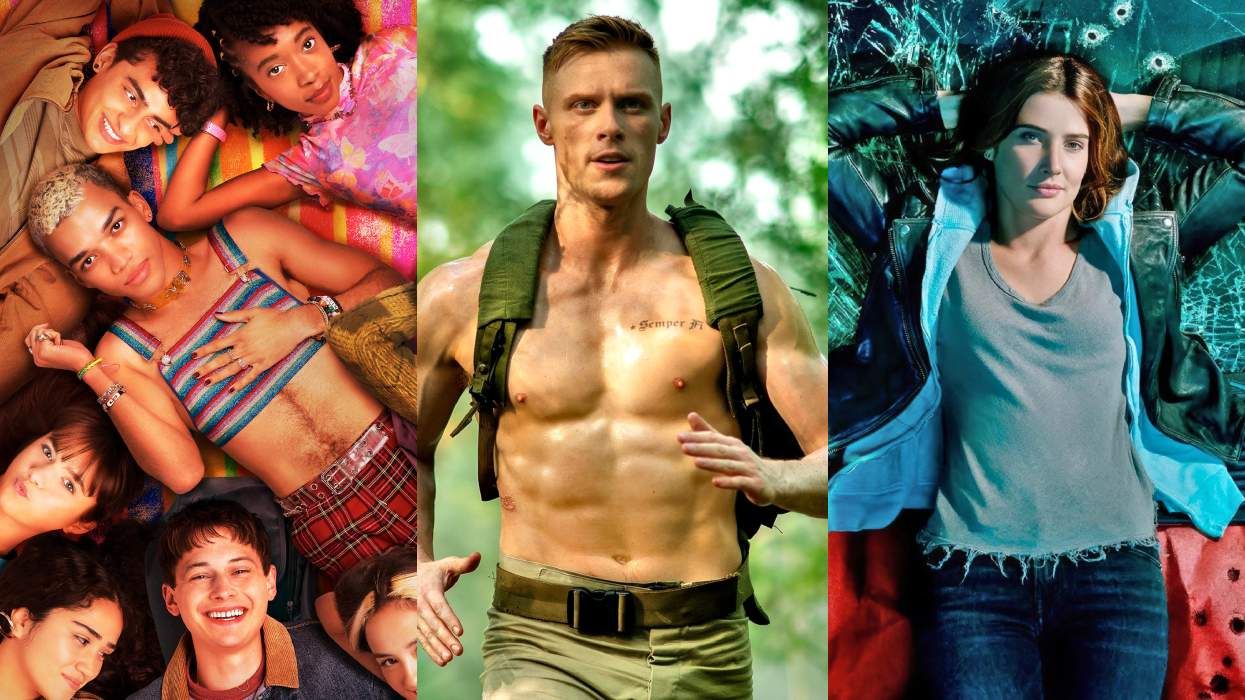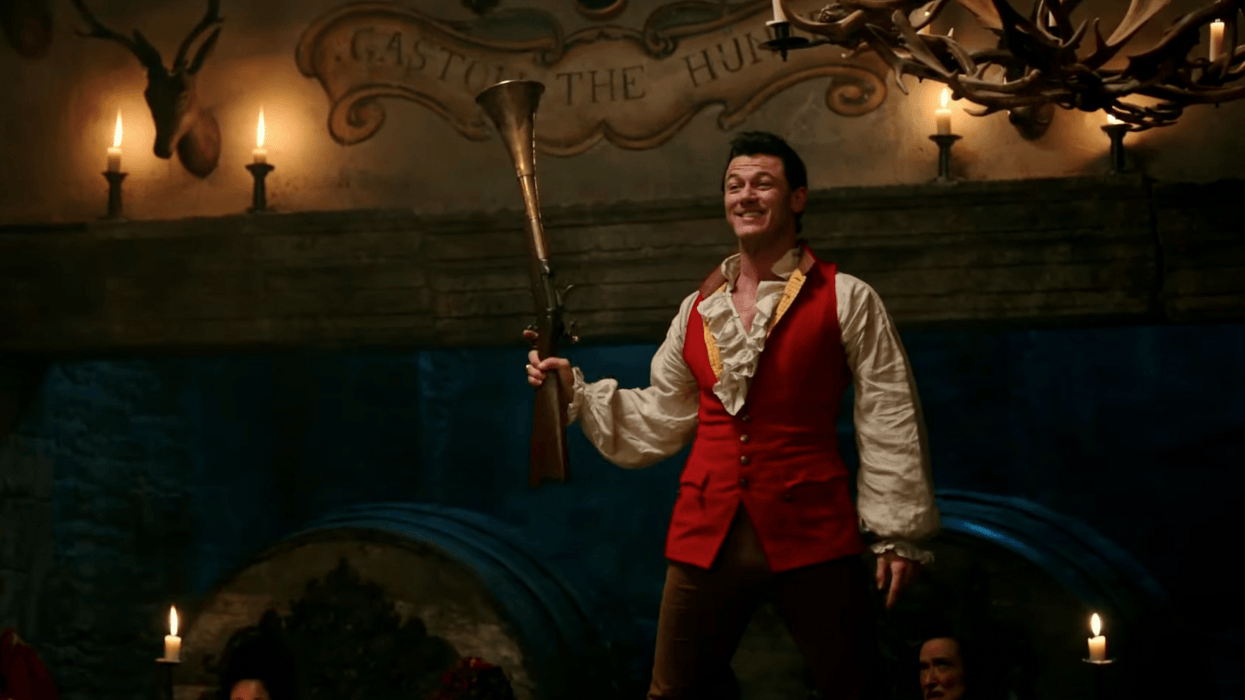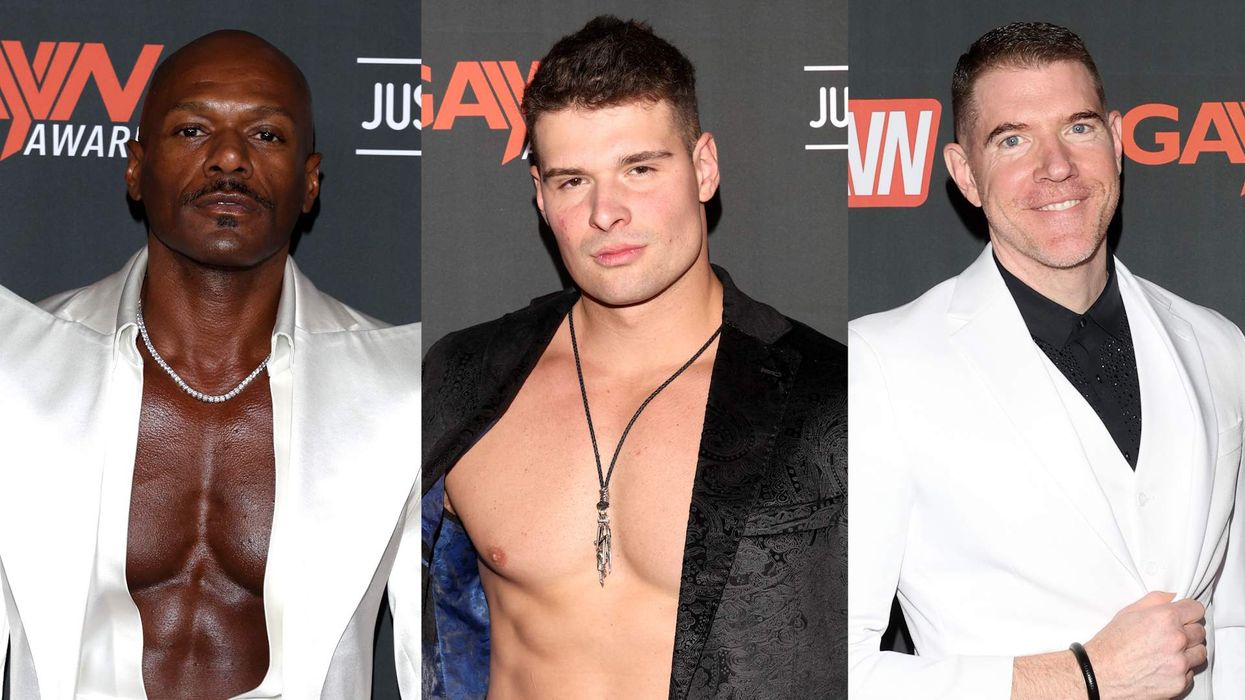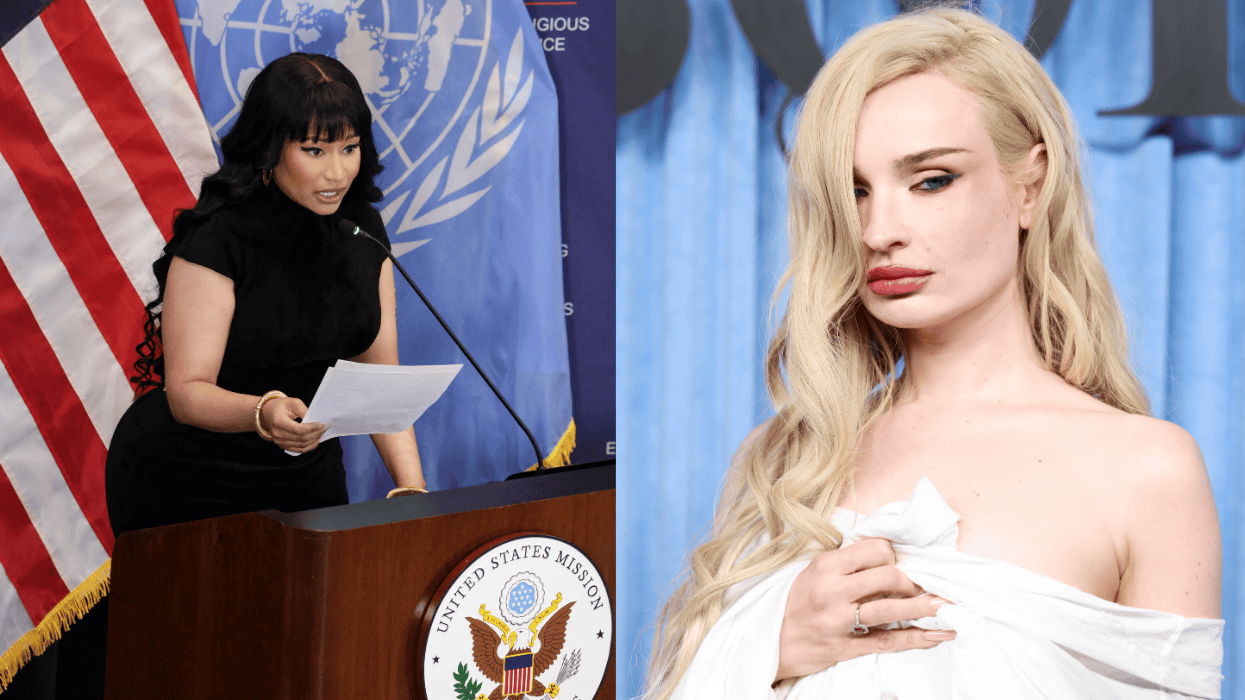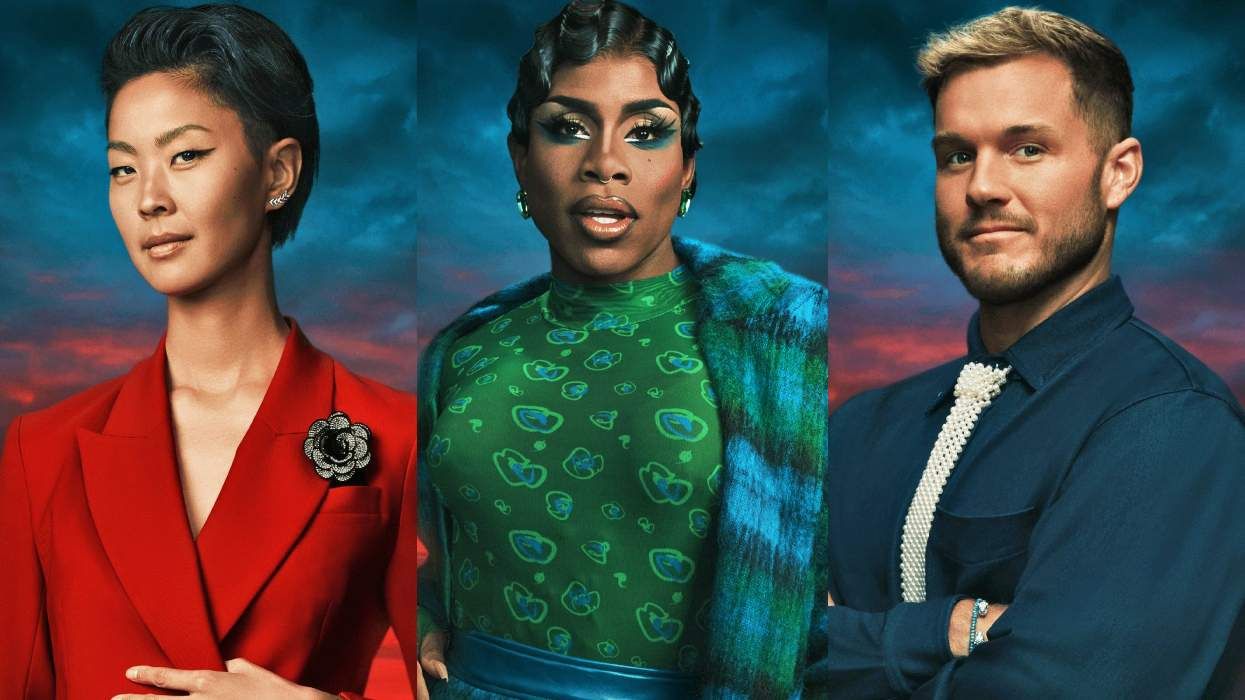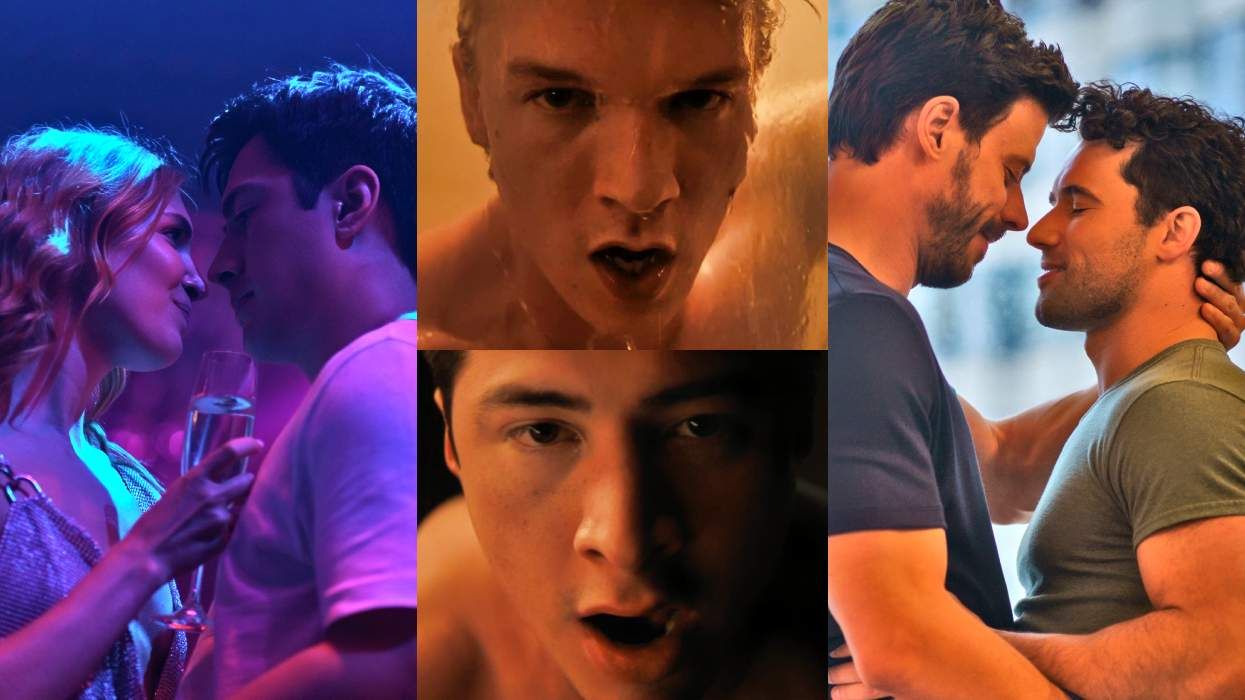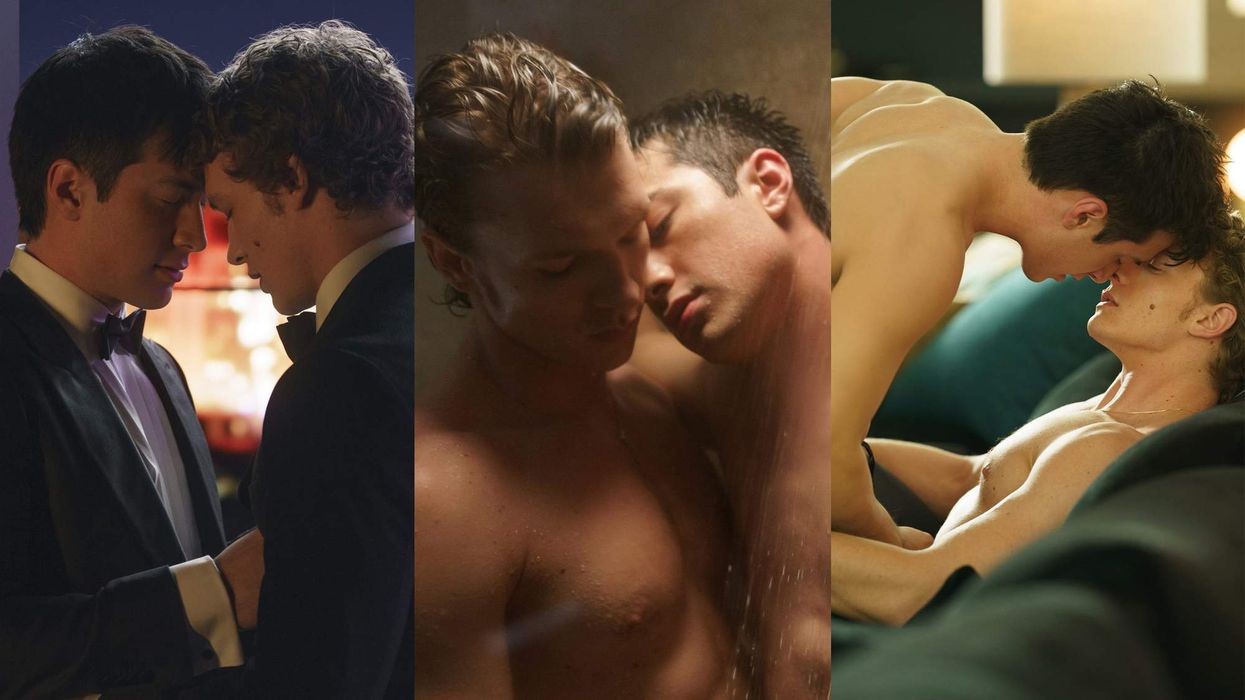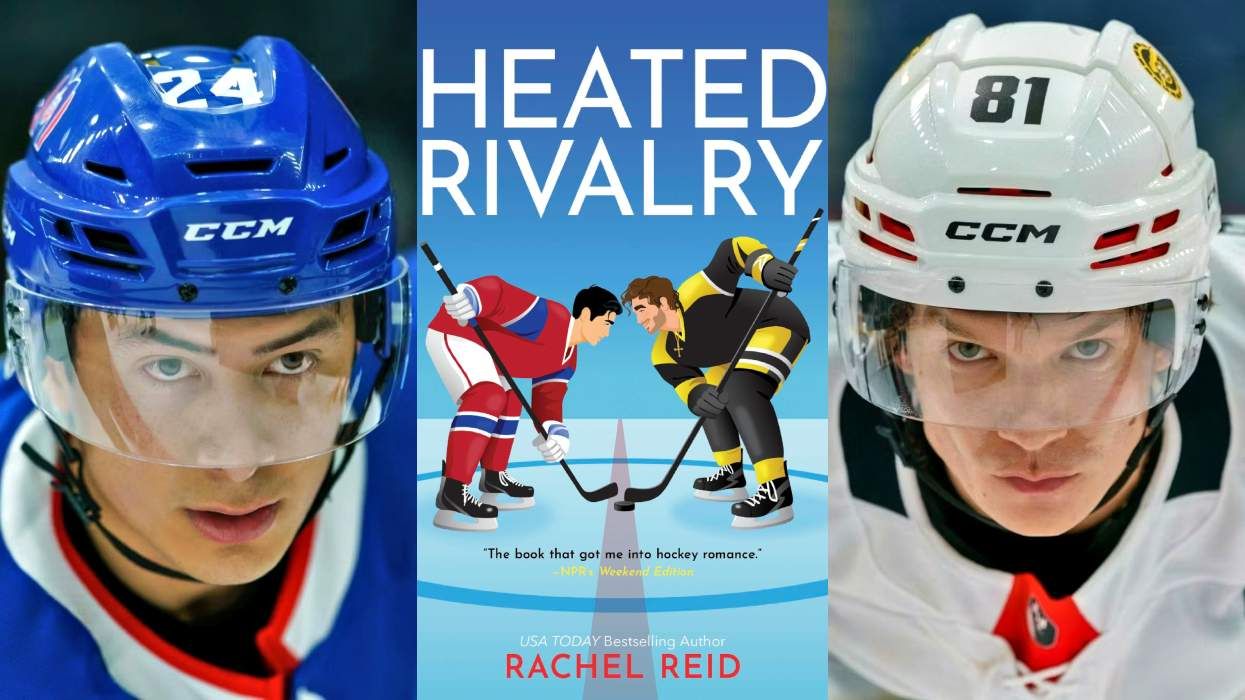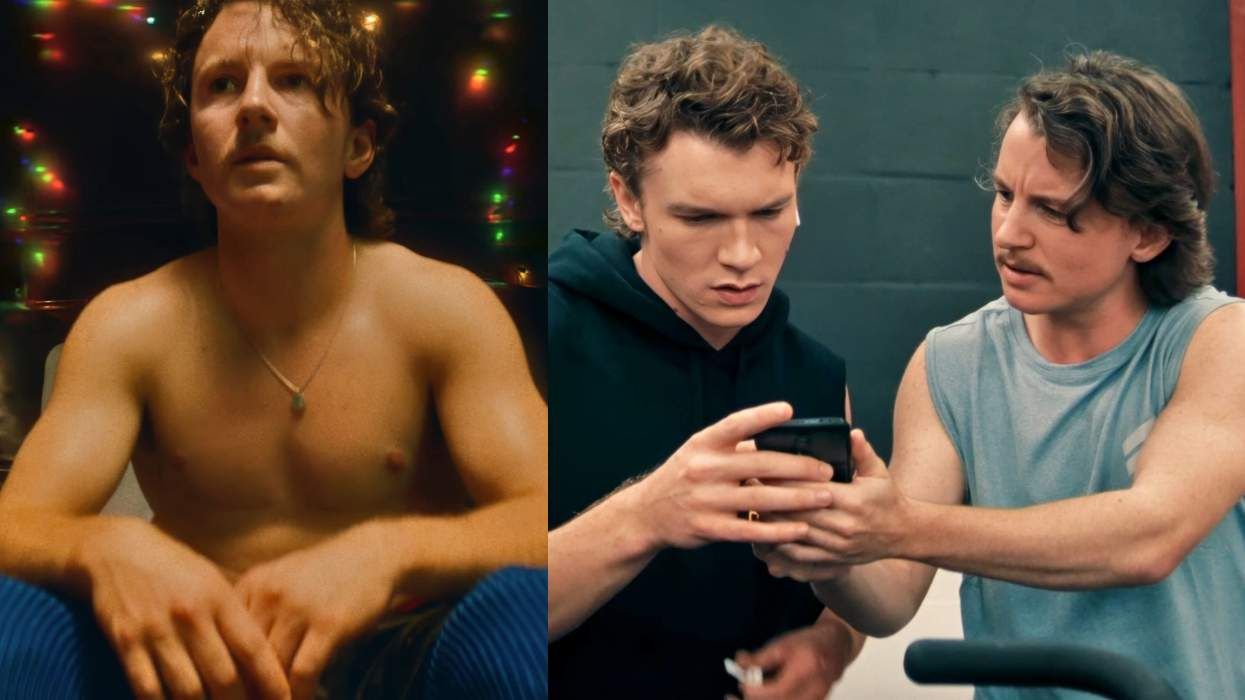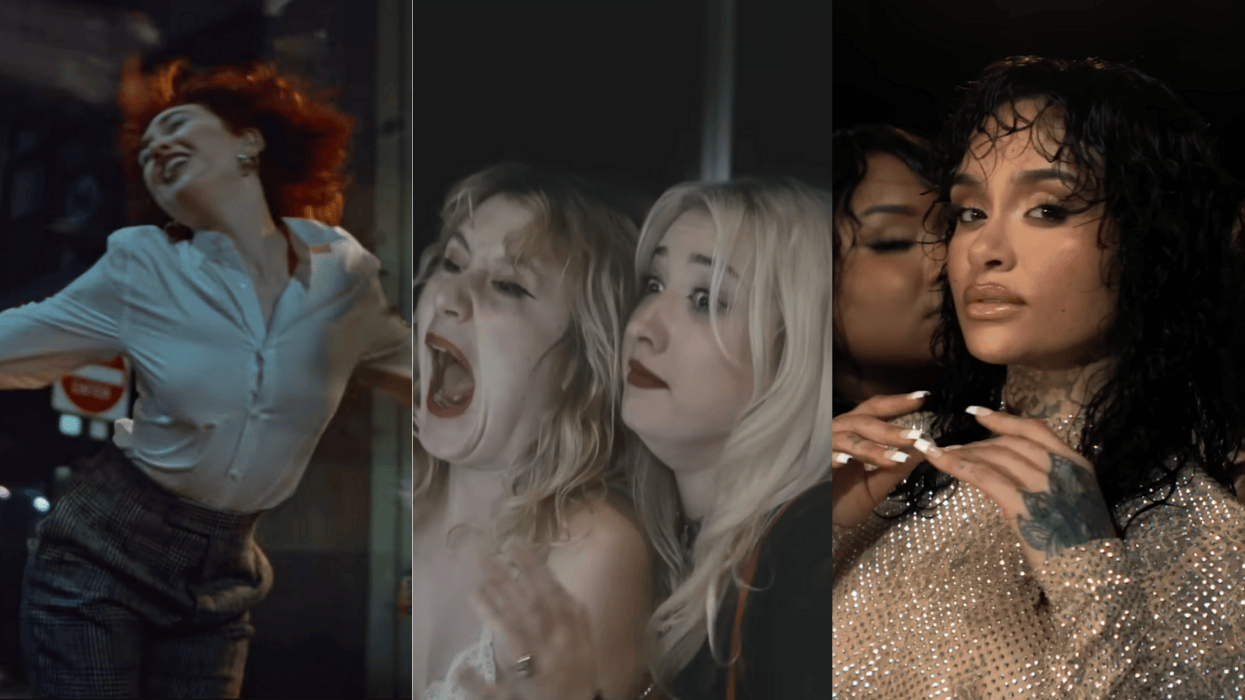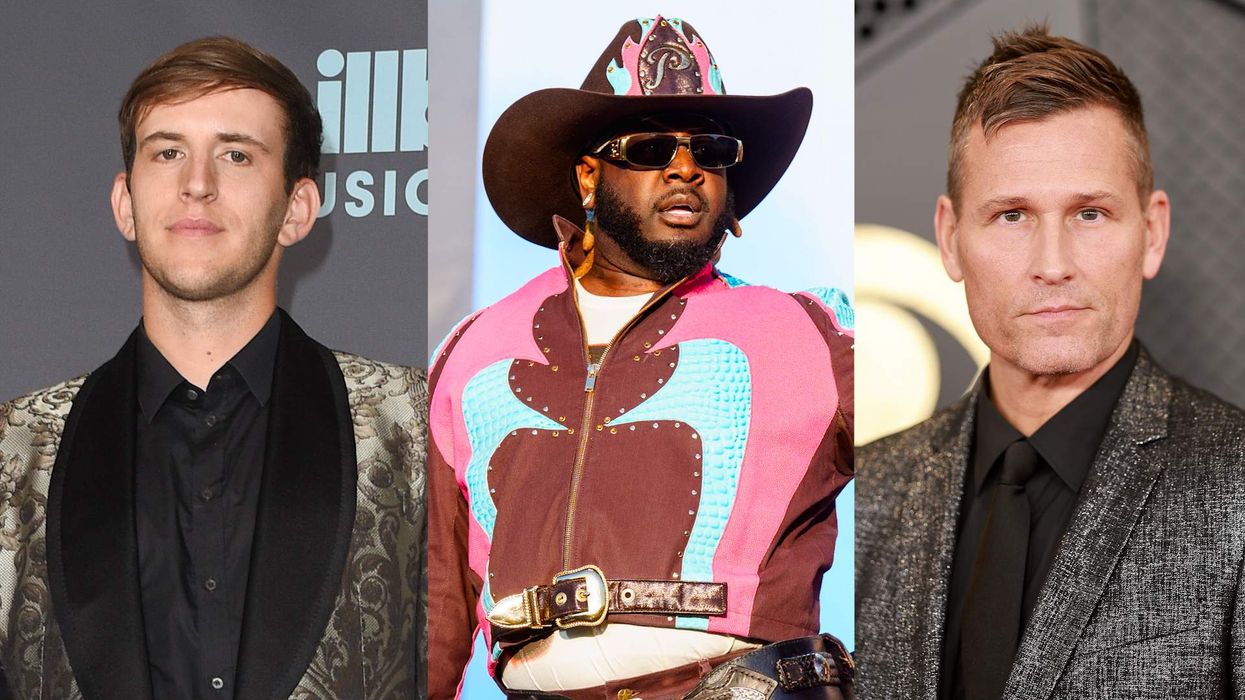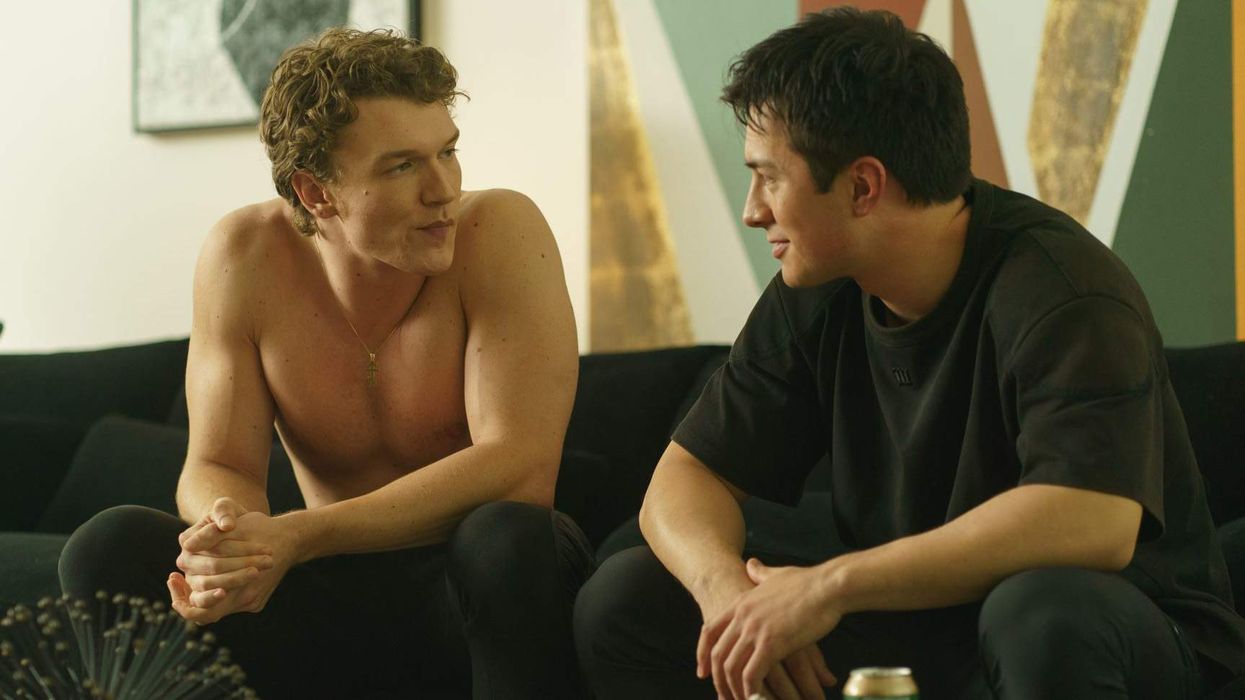Off and Running, a new documentary which brilliantly redefines the concept of the American family, features a teenage African-American adoptee named Avery who is being raised by two Jewish lesbians. The film, which chronicles three years of Averys life and her struggles with race, identity, and family, has already earned praise from the Tribeca Film Festival, Outfest, Philadelphia QFest, and Silverdocs, and will be showing in various cities across the country this spring. We caught up with the films director and producer, Nicole Opper, to find out what it took to bring such a powerful piece to the big screen.
Out: How did you first meet Avery and her family?
Nicole Opper: I met Avery a long time ago, about 10 years ago, when I was filming at her Jewish day school in Brooklyn for a student project. Then I started a film class there and she became my student and we just kept kind of weaving in and out of relationships until finally we ended up being friends and she would come back and visit as a teenager. But we didnt start shooting until she was 16 years old and started having this deeper exploration of who she was. And I thought that was interesting, so we began to film. But I met her family through Avery.
How were you able to keep everyone so raw and honest?
I would say it really just had to do with maintaining the trust of the family. I think they felt comfortable with me and knew where I was coming from, and we developed trust over a lot of years. We spent a lot more time off camera getting to know one another and just hanging out getting meals together than we did on camera. And they knew that I cared very much about Avery and her future and her well-being. So, all of that just naturally translated into opening up in front of me on the camera, I suppose.
How often were you filming?
It would usually be about once a month. That would vary, once or twice a month, and then [there] was a two-month stretch in there where we didnt do any filming at all. Avery kind of dropped off the face of the planet. But then she came back, and we picked up. So it was fairly consistent.
What was the biggest challenge while making the film?
Thats such a hard question. I dont really know the answer to that one. On this film I would say the biggest challenge was knowing when to stop. Because you know, we had a whole village of people supporting the project and rooting for us. We werent on our own, creating our own time line, which could be tricky because we also had to wait for things to unfold naturally in Averys life in order to build a narrative arc. So when it became clear that her story wasnt about going to Texas and meeting her birth family, what the story would be about had its challenges.
While the film features a family lead by a lesbian couple, it's about a lot more than that. How does a film feature LGBT people without being a gay movie?
That was a struggle for me. As a lesbian who wants to adopt one day, I went into this story with a bit of a nave point of view and a bit of agenda, which was I wanted to show how beautiful and tightly knit this family was. And I wanted the world to be aware of that, and the beauty of our families, the diversity of queer families. So while to some extent I think that does happen -- I think that people do attach themselves to the characters in the film because theyre real people and theyre flushed out and theyre honest. At the same time, it was an education for me to see how little Averys moms sexuality impacted her growth and her identity development. Really everything hinged on her relationship to race and her racial identity, and so there was a point in which I had to gain some perspective and distance myself from the experience of being queer and wanting to tell these powerful queer stories, and just letting myself truly opening up to what Avery was going through and experiencing without that lens in a way.
So, was it during the editing process that you chose not to make this about a lesbian couples struggle and instead to focus on Averys growth?
It wasnt so much a decision as much as it was just an organic process of following her and discovering what it was that was going on in her head. And we let Avery lead the way, so when it became clear what the issues she was coping with truly were, that was the path that the story took as opposed to my directing her life and her struggles and saying, This must be about these lesbian moms -- lets explore it!
More broadly, were you conscious that this film was becoming an American coming-of-age story versus, say, a black film, a gay film, or a Jewish film?
Thats a good question. I think at the heart of every film, youre just kind of conducting a search for the humanity of the story, and so it wouldve been impossible to pigeon-hole Avery one way or another. Thats the whole point -- she is black, Jewish, and the daughter of lesbians and a member of an interracial family. So theres no way to authentically share her story without exploring all these elements that make up who she is, whether they are working together or whether they feel fragmented, which is sometimes the case. The other thing is we started showing rough cuts of the film to young people along the way and noticing that a lot of people were identifying with Averys struggle, whether or not they had any experience with adoption, whether or not they were black, whether or not they were the children of LGBT people. So that was eye-opening too. There are certain things shes going through that are specific to transracial adoptees and children of LGBT folks, but there are also a lot of things going on here that are just about the adolescent experience of coming of age.
The movie has been a standout at film festivals left and right, from being a Top Ten Audience Favorite at the Tribeca Film Festival to the Jury Award for Outstanding Documentary Feature at Outfest. Did you expect the film to fare so well with both audiences and critics?
I wasnt really sure what to expect. However, we didnt make the film in a vacuum. We did a lot of rough cut screenings along the way for a lot of varied audiences, and always with an eye towards, Do we have people representative of our audience here who are reflected in the film? So while I wasnt heading out into the world with no sense of how audiences would react, I did wonder a little bit about how once we got into these sorts of niche and segmented festivals, would I pick up on patterns and would there be differences in the reactions? And people often ask, well whats it like when you go to the African-American festivals versus the Jewish film festivals and the LGBT festivals? Its been really meaningful to me to be able to say there are no patterns to pick up on. Its been impossible to generalize that way, which I think is really thrilling because hopefully that means were speaking against stereotype here.
The film is set to join the ranks of some pretty powerful stuff on the PBS documentary series P.O.V. later this year. How did that opportunity come about?
I believe I just sent over a screener and Im pretty sure it was while we were still in the rough-cut stage, right before we had our technical premiere. So we knew we had P.O.V. on board before we premiered. And that was a natural fit because its an independent television service project so ITVS [Independent Television Service] automatically sends films in for consideration.
Youve shot many short films but this is your first feature. Which do you prefer?
Theres something really gratifying about being able to make a piece quickly [Laughs]. But, this has been really rewarding, to spend the whole three years on this project. And you know, I was producing other shows and things along the way too. I was producing a crazy show on queer culture for Here! TV while I was making this movie. But yeah, Id like to continue to make feature-length documentaries and possibly some narrative work, as well.
Youve been in the independent business for quite a while. Is there any desire to head to mainstream?
Fun question. Mainstream? I dont even know what that means. I mean, my life isnt mainstream and it would feel inauthentic to tell a story that wasnt somehow based in my own experience of the world and outlook on the world. And beyond that, I think what we need to see more of in the media are representations of rarely heard voices, and Im just drawn to these stories of people who are kind of on the periphery or what have you. So no, I dont want to move to the mainstream, I like it here. [Laughs.]
Whats up next for you?
Next, Im actually headed to Mexico in about a month to begin shooting another feature-length documentary film about several teenage boys who have been abandoned by their families and who have spent years fending for themselves on the street, but move into a sustainable home created for abandoned youth where they live with 72 other boys. It will be another coming-of-age story and what its like to grow up in a family like this. And ultimately, it was something thats a success story. Most of the kids who age out of this home, which is really more of a family than a foster care institution, end up going onto college and off to follow their careers. So Im going to go explore that.
Off and Running is now playing in select theaters. Click here for a full list of dates.Send a letter to the editor about this article.
Search
Latest Stories
Sign me up!
See what's new and hot in queer entertainment, in your inbox three times a week.
@2025 PUBLISHING INC
ALL RIGHTS RESERVED
ALL RIGHTS RESERVED
By continuing to use our site, you agree to our Privacy Policy and Terms of Use.
The Latest
More For You
Most Popular
Load More
@2025 PUBLISHING INC
ALL RIGHTS RESERVED
ALL RIGHTS RESERVED


